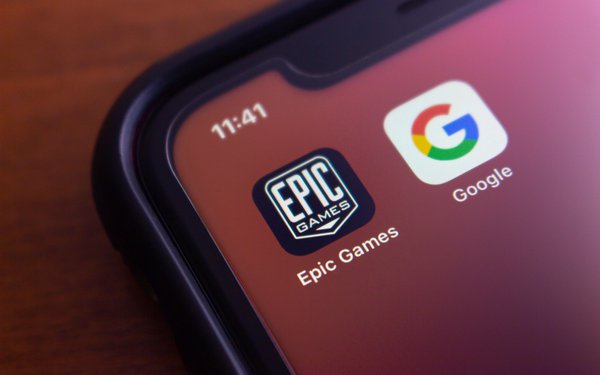
Fortnite developer Epic Games is opposing Google's request to
stay an injunction that would require Google to revamp its Play Store.
“Injunctive relief is in the public interest by definition because it will put an end to Google’s active
anticompetitive conduct,” Epic argues in papers filed Monday with the 9th Circuit Court of Appeals.
The order, issued earlier this month by U.S. District Court Judge James Donato in San
Francisco, includes provisions that would require Google Play to host other companies' app stores, and give those companies access to Google's library of apps. The injunction also includes provisions
prohibiting Google from forcing developers to use its billing system for Play Store apps.
Donato issued the order after a jury sided with Epic Games in its antitrust battle with Google. Epic
alleged in a 2020 lawsuit that Google wrongly required developers who distributed Play Store apps to use Google payment system, and also made it too difficult for Android users to download apps from
sources other than the Play Store.
advertisement
advertisement
The matter went to trial last year, and resulted in a jury verdict that Google created or maintained an illegal monopoly in two markets -- Android app
distribution, and Android in-app billing.
Google is appealing the verdict and has asked the 9th Circuit Court of Appeals to stay the injunction.
Earlier this month, Donato agreed to
halt the bulk of his order until the 9th Circuit rules on Google's request.
Epic Games argues in its new papers that Google isn't entitled to a stay for several reasons, including that the
company hasn't shown it's likely to prevail on its appeal of the underlying antitrust finding.
Google said in its initial request for a stay that it “has a strong chance of succeeding on
appeal,” for several reasons -- including that the verdict is inconsistent with a different federal judge's finding in a similar antitrust lawsuit by Epic against Apple. In that matter, U.S.
District Court Judge Yvonne Gonzalez Rogers found that Epic failed to prove that Apple violated anti-monopoly laws, and that Google and Apple Play compete with each other.
Donato violated
“basic preclusion principles,” by allowing Epic to prove that Google monopolized a market relating to mobile apps after Rogers found that Google and Apple compete in the app marketplace,
Google argued.
“It is pause-inducing that Apple, which requires all apps go through its proprietary App Store, is not a monopolist, but Google -- which built choice into the Android
operating system so device makers can preinstall and users can download competing app stores -- was condemned for monopolization,” Google said in its initial request to the 9th Circuit.
But Epic counters that Google's argument is a “red herring,” arguing that the claims against Google centered only on Android apps and payment systems. Essentially, Epic says that even
if Apple and Google compete in the general market for mobile apps, Google could still monopolize the narrower Android-specific markets for app distribution and in-app purchases.
The Federal
Trade Commission and U.S. Department of Justice sided with Epic on that point in a friend-of-the-court brief filed Saturday.
“Even though a broader market in which both Apple and Google
app stores competed was relevant in Epic v. Apple, there is nothing contradictory about limiting the relevant market in Epic v. Google, a case involving different challenged conduct, to the
distribution of apps sold on Android phones,” government attorneys wrote.